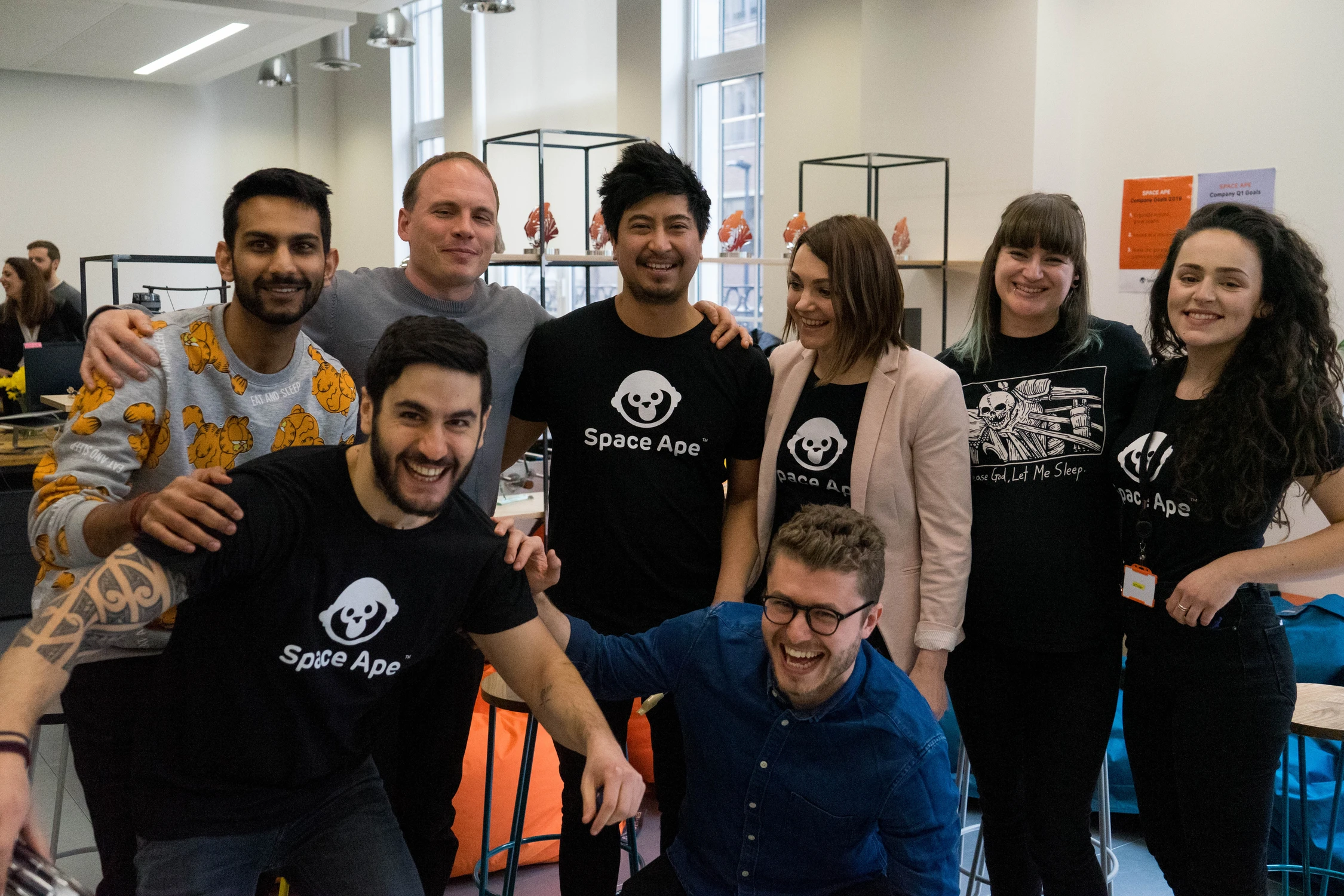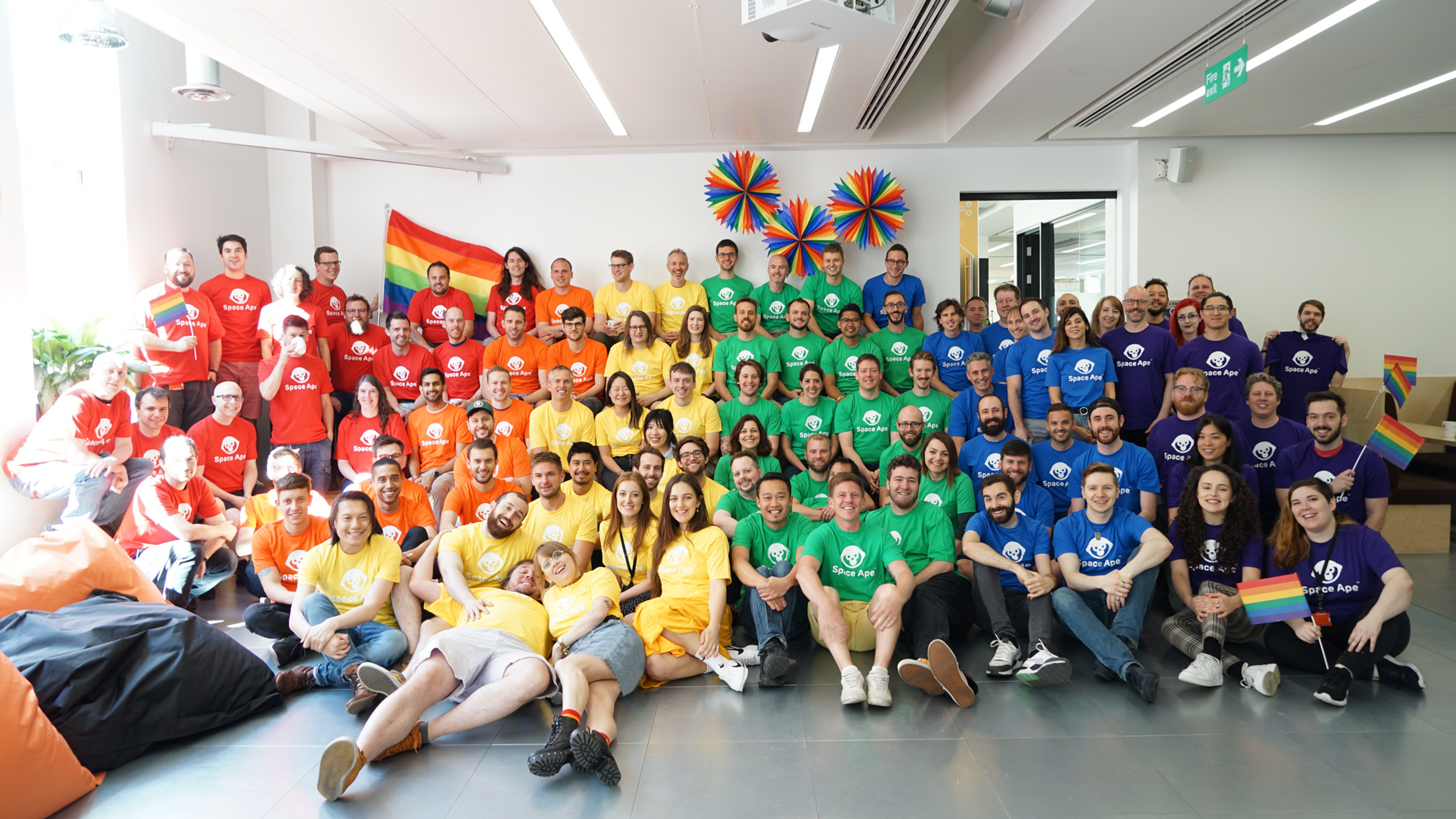Good Leadership
- Deborah Mensah-Bonsu
- Oct 6, 2023
- 5 min read
Updated: Oct 10, 2023
Getting your company to care. How Space Ape Founder and CEO John Earner shepherded his studio to carbon neutrality.

A New Company Goal
Like every year for nearly a decade, in the first months of 2019 Space Ape Founder and CEO John Earner stood up in front of his entire staff at a company all-hands and announced the studio’s direction and priorities for the rest of the year.
“We try to unite our company and our game teams around a single shared mission," says Earner.
The mission - create the best games on mobile.
“Our teams are in a better position to figure out how to achieve that mission than we are, so if I can do a good job explaining where we want to go and why it’s worth getting there, they can figure out the best path to do so.”
Space Ape is a London-based mobile developer founded in 2012 and has four live titles to date. It partnered with Finnish mobile giant Supercell in 2017, and is currently planning the launch of three new games before the year is out.
At the yearly goals meeting Earner spoke about the focus on the three games going into soft-launch, reorganising teams and resources to support new titles, strengthening the company’s culture, and then there was something his employees didn’t really expect.
“I said, ‘We’re going carbon neutral.’”
Earner says he’s been interested in - and alarmed by - climate science since he was a teenager, but only in an abstract way. It wasn’t until recently that he decided to do something about it.
“Humans aren’t wired to think about what happens in 10 or 20 years. We plan for today or for the next season, but I, like a lot of people, have come to believe this is the most serious issue of my lifetime because of noticeable, real change around me.”
Earner created a small ‘green team’ in the studio, and together they came up with an approach to take the company not just carbon neutral, but carbon negative. They documented their process, including their shortcomings and mistakes, and shared a practical guide other studios could replicate. Earner is the first to admit that their process isn’t perfect. The studio tries to refine its efforts every year, and find better ways of mitigating its footprint. This year they're reviewing investment in more sustainable solutions, like carbon capture technology.
“Too much of our carbon neutral plan relies on uncertain offsets. We've done extensive research and worked with several outside partners to identify solid programs with measurable impact, but we still don't feel as confident as I would like. We also don't have enough info on our players' phone energy usage while playing our games so we're running some of our own research this year. Finally, we have no visibility on the carbon footprint of our cloud servers. You improve what you measure. We are making guesses when we shouldn't be. There are a lot of unknowns and there’s a lot of bad info out there so it takes careful research and constant reassessment. But it’s worth it.”
The studio offsets 200% of their footprint, as well as the energy used by players to play their games. Space Ape also committed to reducing their footprint by 10% year on year.


Mobilising Millions
Despite the flaws in carbon accounting and mitigation, Earner says our efforts also shouldn’t stop at the studio level.
“Whatever good we can do as an office and 115 individuals, we will. But it pales in comparison to the opportunity to mobilise millions of players. There's a lot of talk about how tech and games harm people, but not nearly enough discussion about the good we have done and can do.”
Space Ape’s journey to carbon negativity also led the studio to the Playing for the Planet Alliance, a UN Environment Programme initiative composed of environmental experts and games industry leaders on a mission to inspire communities, change the industry and decarbonise platforms.
Off the back of commitments made at the UN Climate Summit, Space Ape spearheaded the Green Mobile Game Jam and rallied other mobile studios to go beyond reaching their staff, to reach their millions of players.
“Our industry has more reach than film, television, and sports. We are an influential medium! Our games are amazing tools for players to meet, learn, organise, and collaborate amongst themselves.”
Earner says there is a huge desire amongst players to do good but it can be difficult to know how, or to believe that the changes they make will matter. That’s where games can help.
“It's a big responsibility. Our business depends on hard-earned trust in our players. But if we’re ready to take this seriously and do our homework, then why not encourage our players to organise around planting trees or changing their energy provider.”
The first instalment of the Jam reached more than 100 Million gamers and encouraged climate action around reforestation, renewable energy and promote environmental activism. This year Jam participants hope to reach 1 Billion players about the conservation and restoration of forests and oceans.


The Fear of Lost Focus
So what is stopping others in Earner's position from taking the leap to effect change through their companies or games? Earner says the biggest obstacle he hears from other founders is a sense that doing good results in de-focus.
“Focus is life or death for a young company,” he says. "Founders rightly fear that any energy put against things not core to their mission will result in failure. But you do have time to do the basics and become carbon neutral. It's not hard or expensive to make your footprint green.”
We all need to start thinking about carbon as a real currency we are spending, says Earner. And the budget is finite.
“It is adding up. These are costs you are accruing. You can’t just let someone else pay for it. If you don't, who will?”
About reaching players through games he says that studios sometimes don’t want to bear the risk of injecting political messages into their titles.
“What if players resent it and leave the game? Or what if the message is viewed as bad faith or ‘greenwashing’.”
But he says that so far Space Ape’s player community has supported every concerted effort to promote climate change awareness or get behind a good cause. When wildfires raged across Australia in the beginning of 2020, players donated more than $100,000 in four days to the relief effort via Space Ape’s games.
“Climate change is not political,” says John. “It's a real thing that's happening because of our actions. We all need to be interested.”
Space Ape is running a carbon accounting workshop for other interested studios in April.
You can register here.










Comments